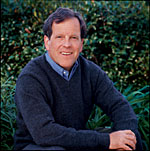sierraclub.org - sierra magazine - march/april 2009 - create: chill your power bill


Create | The Politics of Tomorrow
Retrofitting America could jump-start our economy
By Carl Pope
 Once again this winter, as a recession settled over the country, millions of Americans struggled to heat their homes. Come summer they'll have to figure out how to keep their air conditioners going. On top of the financial crisis, the country faces an energy crisis because we are burdened with buildings powered by fossil fuels that waste that power through inefficiency.
Once again this winter, as a recession settled over the country, millions of Americans struggled to heat their homes. Come summer they'll have to figure out how to keep their air conditioners going. On top of the financial crisis, the country faces an energy crisis because we are burdened with buildings powered by fossil fuels that waste that power through inefficiency.
The American Institute of Architects hopes to make the monthly energy bill a thing of the past, endorsing renowned architect Ed Mazria's vision of making all new U.S. buildings energy self-sufficient and carbon neutral by 2030. Last September the International Code Council, which develops the construction rules used by most U.S. municipalities, came within a few votes of adopting a bold new set of energy-efficient building standards. The building industry--which doesn't, after all, pay our utility bills--strongly opposed and beat back the package. Despite the setback, the council endorsed code standards that will reduce energy use in new buildings by about 20 percent.
As usual, California is setting the standard. Its Energy Commission has adopted a goal of zero carbon emissions from new buildings by 2030, and the Sierra Club is challenging local development plans that fail to minimize CO2 emissions. When the Club and state attorney general Jerry Brown sued Stockton for its inadequate general plan, the city set a breathtaking precedent, agreeing that every new residential and commercial building be far more efficient than even California's codes require, the equivalent of Leadership in Energy and Environmental Design (LEED) certification.
Stockton also undertook to make new development transit friendly. The building industry bitterly fought the settlement but finally decided to live with it. The handwriting is now on the (insulated) wall: New buildings will be less energy intensive. In a few decades, large utility bills may be like telephone landlines--still around in older structures but obvious relics of the past.
Since we don't replace our buildings as often as we do our phones, what should we do about the more than 100 million homes and offices we already have?
Quite simply, we need to rebuild America. We need to retrofit our entire housing stock, and in a hurry. Economically it makes sense. Most older buildings could halve their energy consumption with improvements that pay for themselves. Homeowners and small-business owners ought to be able to call a toll-free number to arrange for an energy audit and the necessary retrofit work. Their utility bills would decrease, and half the savings could go to repaying their loans. GreenSaver, a nonprofit in Toronto, has embraced this concept and is already making money; Berkeley, California, is letting citizens who install solar power systems pay for them over 20 years through their property taxes.
Happily, this prescription is no longer being promoted solely by the Sierra Club and a handful of progressive cities and states: President Barack Obama himself has embraced the vision described here. His first economic recovery package emphasized retrofitting public buildings--it's easy and fast. This will jump-start the green building industry by requiring worker training and new factories to make energy-efficient windows, insulation, furnaces, and air conditioners. Local and state governments will see their operating costs plummet (utility bills are often their second-biggest expense after salaries) and could repay the loans with the savings.
And once we finish with public buildings, we will have the infrastructure in place to rebuild the rest of the country. Every year the federal government gives out $5 billion to help poor people pay their utility bills; why not spend $100 billion, once, to insulate and retrofit homes to slash power bills permanently?
Backward segments of the building industry are sure to continue fighting to keep our homes and offices leaky, expensive, and polluting, but they will soon be washed away by the coming green tsunami. The future is clear: higher performance, more jobs, lower carbon emissions, and eventually, no utility bills. Let's get going.
Carl Pope is the executive director of the Sierra Club. E-mail carl.pope@sierraclub.org.
Photo by Lori Eanes; used with permission.